“It hurts to be Russian these days,” says writer Mikhail Shishkin.
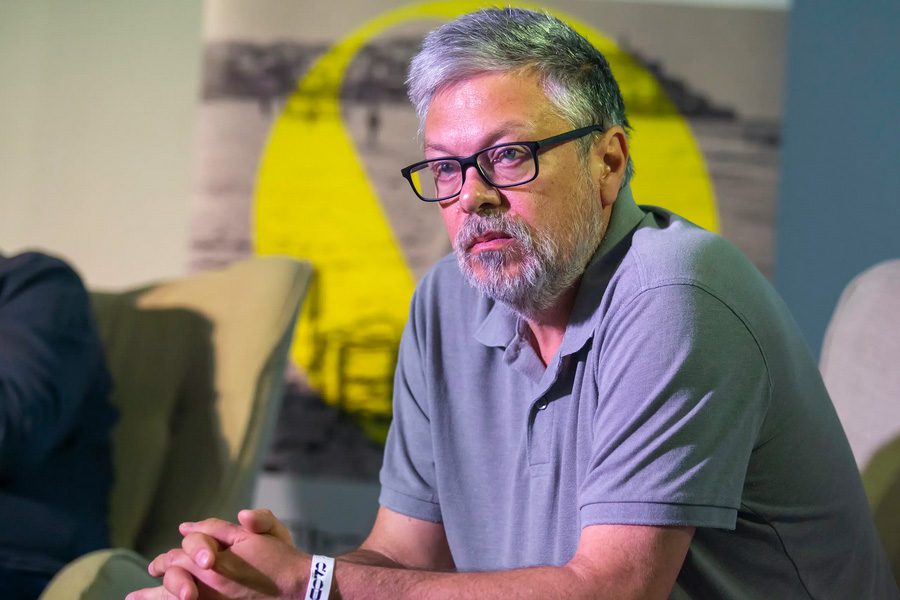
He was recently awarded the Strega Europeo literary prize in Italy. And before that, at the SlovoNovo forum for free culture in Israel, he shared his experiences as a writer during fascism.
Premio Strega
The Strega Europeo Literary Prize was established in 2014 on the occasion of the Italian Presidency of the Council of the European Union “to support the most original and profound voices of contemporary fiction”. Since then, it has been awarded annually to foreign writers whose new translations have been published in Italy. This year’s prize-winners were honoured in Turin on 22 May.
Shishkin’s novel The Letterman was published by 21lettere in March. Translated by Emanuela Bonacorsi, the book is entitled Punto di fuga. The Russian prose writer shared the prize with the Belgian writer Amélie Nothomb, whose novel Primo sangue (First Blood) was published in Italian by Voland Publishers. In Russia, The Letterman was published in 2010 and was awarded the Big Book Award in the same year.
СловоНово
The SlovoNovo Free Culture Forum brought together writers, artists, musicians, filmmakers, politicians and businessmen in Tel Aviv from 16 to 20 May. The forum was founded in 2018 by gallerist, collector and publicist Marat Gelman. The event traditionally takes place in autumn in Budva, Montenegro. It is accompanied by the opening of contemporary art exhibitions, literary readings, concerts, film screenings of Ardokfest and discussions on current topics.
Mikhail Shishkin’s talk in Israel was entitled “Literature in the Time of Fascism”. “Switzerland for All is printing it in abridged form.
On the crime against the Russian language
It hurts to be Russian these days. And the question of guilt and responsibility comes up. A person can be innocent and not feel guilty, but responsibility doesn’t go anywhere. I understood it long ago. I had a very important lesson in my life when I was 17 years old. With my girlfriend (who was my first love) we went to the Baltics. In the Soviet Union there was our Europe. And everything was wonderful until one moment, when in Tallinn I addressed some question to a passerby, naturally in Russian. And I got an answer. Not with words, with a look… Silence, full of hatred for the occupant and his language. Perhaps some of you have also experienced something similar.
It hurt me very much. I am not the occupier. We have a common enemy: we are for our freedom and yours. I was only 17 years old: what could I have done wrong to you? I was very much offended by this silent hatred. And it taught me a lesson: it means I am not only responsible for myself. I am responsible for my language. I am responsible for my history, for my country, for my past – I am responsible for everything. And no one will ever take that responsibility away from me. Never.
Later on, I often visited the Baltics as a famous writer, I presented translations of my books, also into Estonian. And to those people who offended that young man there, I’m grateful for the lesson. And I remembered him for a reason because what is happening in Ukraine is a crime not only against humanity, against people. It is also a crime against my language. The Russian authorities hypocritically declared the goal of the special operation to save the Russian language, Russian people and Russian culture. And they made my language the language of murderers. And now everything that relates to Russian culture and literature is also connected to the heinous crimes in Bucha.
About the fight for the Russian language
What should I do? I have to fight for my language. I won’t give it up that easily. But the hatred will grow every day. I know this from my own experience. My father went to war at 18 to avenge the death of his older brother. And then all his life he hated the Germans, their language, sincerely hated everything connected with Germany. I remember very well how I tried to talk to him: “Daddy, there are wonderful writers there. And the German language is beautiful”. My words were powerless. What do I say to the Ukrainians? I know Ukrainians whose homes were destroyed by Russian missiles, Russian soldiers killed their relatives. And what do I tell them? That Russian literature is beautiful, that the Russian language is beautiful?
I do what I can. I can only speak and write. I have a mission now: to prove to mankind that Russian is not a killer. That Russian is not the language of murderers. I write articles, give interviews, give speeches. Suddenly after February 24th people started to listen to me. Before that they were nodding their heads but did not understand. Although everything was clear before the Sochi Olympics. I wrote, I explained, I called for a boycott of the Sochi Olympics. What did Switzerland do? They built a Swiss chalet in Sochi and the president of the first democracy in the world personally “licked the boots” of the dictator. And then came the annexation of Crimea and this war against Ukraine.
On countering crime
In 2018, in the Swiss press, I called for a boycott of the World Cup final in Russia. Who do you want to support? Do you want to support the aggressor who started the war? The one who took his country hostage? Or do you want to support Ukraine and the hostages in Russia? But then you should boycott the Championship. Alas, when it comes to billions of dollars, who will listen to a writer? And teams from all over the world have come to play football in front of Putin. It was then – in 2018 – that the door was opened to February 24. They didn’t hear me then, and now: it turns out you were telling the truth! But this is Switzerland – a country where there is democracy, public opinion, which can influence the government.
In the early days of Russia’s full-scale war against Ukraine, the Swiss government said it would maintain its neutrality. That same evening, I spoke on the SFR Arena, which is a political talk show watched by the whole country. I declared that the era of neutrality is over and explained why. And the next day, Switzerland makes a historic decision to support Ukraine.
It is clear why there are waves of solidarity now, while back then, in 2014, in 2015, it was as if Ukraine was on another planet. Now the Europeans have also become hostages – we are in the same boat. People were scared for themselves and their children. And this manifested as solidarity with Ukraine. One of the striking experiences was the solidarity rally on March 5, when 40,000 people gathered on the main square in Zurich. It was something unprecedented for Zurich. And for me it was a special feeling to speak in front of a huge square and feel an incredible wave of solidarity.
About Ukrainian refugees
This solidarity is also evident in the treatment of refugees from Ukraine. In Switzerland, the rules are the same as in the EU, Ukrainians are accepted without any formalities, just with their passport. We also have Ukrainian refugees living in our village and we help them as much as we can. My son Ilya is 8 years old. And an 8-year-old boy from Odessa, Misha, lived with us for over a month with his mother. And his grandmother stayed in Odessa. He knew what was happening and he was afraid that his grandmother and his house would be bombed by a Russian pilot.
How do you explain to a child why a Russian pilot would destroy his house, kill his grandmother in Ukraine? It is impossible to explain. We didn’t want to talk to him about it, we just wanted to give him a little bit of a normal life. He used to go to school and to football with our Ilya. Once we had an ordinary picnic in the woods, nothing fancy, grilling sausages on the fire. And before he went to bed, he said to me: “What a lovely day! I’ll remember it for the rest of my life.” And it seemed to me more important than all my interviews, more important than all the words I said and wrote during those weeks.
Ukrainians (mostly women and children) in Switzerland are distributed among their communities. The communities hold solidarity meetings for them, where refugees and Swiss people meet. It is important for me to go to such meetings. It was very difficult to speak at the first one. I came into the hall and there were these women sitting in front of me, they did not know any writer Shishkin, they had not read any of his books – a Russian came out in front of them. There was hatred in their eyes. I thought they would stand up and shout about their homes they had left behind, their husbands who were in territorial defence or at the front.
I felt that as a Russian, I was responsible for what was happening. And I have to speak to them. And I stood and spoke until the hatred disappeared in the eyes of the women. They saw that there were other Russians. That “Russian” does not mean “murderer”. That Russian is the same language of humanity and humanity. They applauded, they did not want me to leave. In my personal war for my language, it was my small victory. And I will continue to fight for my language. I will not give up my language to them.
About Russian and “Russian”
For me, it is fundamentally important to be together with Ukrainian writers. Such a conversation can be difficult, some of them declare: “Russian is the language of the enemy, a good enemy is a dead enemy”. But there are other writers in Ukraine. Recently, Yuri Andrukhovich and I had an hour and a half program on German radio: he is from Lviv, I am from Basel. Real writers have to show the world: we are together, we have a common enemy. It is not a war between Ukrainians and Russians. It is a war between people who speak both Ukrainian and Russian, and non-humans who carry out criminal orders. In Russia, people take to the streets against the war and the non-humans arrest them.
With another Ukrainian writer, Andrei Kurkov, we spoke together in Oslo. We discussed “abolition of Russian culture”. We live in a world where words have to be re-explained, Russian – who is it? What is Russian culture? What do we understand by the word Russia? We have to give each word a new definition.

If a world star from Russia is in favour of Putin in Europe, then of course a boycott is necessary, but I think a boycott is not enough. Every democratic country has laws against war propaganda, against hate speech. They have to be applied. In Switzerland, these are Articles 260 and 261 of the Criminal Code. And we have to prosecute those who incite hatred. And if someone calls for a boycott of Tchaikovsky and Shostakovich, that’s exactly what the Kremlin propagandists are waiting for. If you speak out against Pushkin and Tolstoy, against the Russian language as such, then you are working for Putin’s propaganda.
About the “immortal regiment”.
It is especially painful when Russians who have lived in Europe for decades (and we saw a rally in Germany with flags and St. George ribbons) support Putin. I was afraid that in Switzerland, as in previous years, there would be an “immortal regiment” rally. So I said to myself: there will be no “immortal regiment” in Switzerland. I wrote and published an open letter which was signed by Russians living in Switzerland, musicians, directors and journalists. We wrote that Switzerland has long failed to enforce its own laws against the laundering of “dirty” money: Putin’s regime grew up on this Swiss “bank yeast”.
Now it is important that Switzerland enforces its own laws against war propaganda: the Putinites are warmongers, criminals. The letter was published in the German-speaking Switzerland “Tages-Anzeiger” and in the French-speaking part of the country “Le Temps”. By then, the police had already permitted an “immortal regiment” in Geneva. But the organisers refused themselves. I did what I could and will continue to do so. Everyone should have their own struggle, everyone should do what they can.
On Russia’s defeat
Sooner or later this war will be over. And what will happen then? I am optimistic about the future of Ukraine. I have no doubt that the Ukrainian army will liberate its land, will reach Ukraine’s borders with Russia. And that the whole world will help Ukraine to rebuild what it has destroyed. Ukraine will be a free, strong, democratic country. But I am full of pessimism about Russia. It is clear that for Russia it will end in economic ruin, but a more terrible disaster is a mental, psychological one.

Russia will lose the war. And how can we make it possible to return to our country? So that it can become democratic? History has already seen two attempts. For a few months in 1917, Russia was the freest country in the world. The rights that Russian women got, Swiss women could only dream of then. That first democracy ended in anarchy, a new war, and a new dictatorship. The second attempt began in the late 80s. The population wanted life to be like in American movies: free elections, McDonalds, nice cars… But what they got was anarchy, dictatorship and war. Everything repeated itself, life in Russia is back to square one.
What gives birth to what? A slave population gives birth to a dictatorship and a dictator? Or does the dictator give birth to a slave population? How to get out of this circle? They cite the example of Germany – they succeeded. Now it seems possible, the defeat of Putin’s regime is approaching. But simply defeating it is not enough. The country needs to be deputinized.
On the need for deputisation
Who will carry it out? I have a feeling that a new Putin with a different surname will carry it out. The prerequisite for deputinisation must be national repentance. “Rising from its knees” of Russia is only possible if the nation finds the courage to kneel in Bucha, Kharkov, Mariupol, in countries where Russian tanks have been: Budapest, Prague, Vilnius, Chechnya, Tbilisi. Will there be this? Doubtful.
In 1945 the Germans made excuses: yes, it turned out that Hitler was a mad criminal, but we Germans didn’t know any of that, we, das deutsche Volk, are as much a victim of the Nazi regime as other nations. I already foresee how it will be in Russia: “We Russians knew nothing. Suddenly eyes will be opened and people in Russia will realise that Putin is a war criminal. “But we didn’t know anything. It seemed to us that we were helping our friends to free themselves from the fascist junta. We, the Russian people, are also only victims of Putin’s regime.” And this will be the first step towards a new Putin.
It is clear that neither NATO nor Ukraine will deputise. It will have to be done by the Russians themselves. Germany was helped to become a more or less democratic country by its allies. And in Russia, who will prosecute war criminals and imprison them? The war criminals themselves? The regime has turned the country’s population into accomplices, smeared them all over: all university rectors, museum and library directors, theatre directors, not to mention government officials, had to sign letters in support of Putin and the war.
The regime has tried to smear everyone with bloody bail: whoever signed the open letters in support of the “special operation” has, in effect, become a “war criminal”. Who will hold the Nuremberg Trials of the Putin regime? Who will create a new state system in Russia? Corrupt officials and war criminals? Who will hold free elections? The same millions of trembling teachers who rigged elections for Putin?
On the trial of the king
There are eternal “damned” questions: who is to blame? What is to be done? They came to us from Russian literature. These are our questions. When Herzen and Chernyshevsky asked these questions, a hundred and fifty million peasants could not read. For them, for the Russian people, the main Russian question was different: Is the tsar real or not real? Today everyone in Russia is literate, but the main question is still the same: Is the Tsar real? This main question is resolved by victories.
Stalin won – the real Tsar is still the real Tsar. Gorbachev lost in Afghanistan, lost the Cold War, so he is not real, he is despised and hated. This is the only legitimisation. Putin won the Second Chechen War, arranged the “Krymnash” – he is the real Tsar. There should have been a victory parade in Red Square on 9 May 2022. Red Square is there, May 9 has passed, where is the victory? The people saw not a victor, but a man making excuses. And it became clear – the tsar is not real.
Check out Strelkov-Girkin’s patriotic Telegram channel. He shouts at the entire Russian internet: the tsar is not real, there are traitors in the Kremlin. When the tsar wants to press the red button, his order will not be carried out, because the order of the fake tsar is not carried out. This means that the search for a real tsar has begun. This is what we will see in the near future.
About future dictators
Russia will continue the process of disintegration of the empire. One can speculate what new countries will emerge. The Russian Federation is pregnant with new states, as it was with the USSR forty years ago. Will they be democratic? Doubtful. But it is clear that there will be chaos and anarchy. We have already been through this. The same laws are being repeated, the same scenario. And we can predict the coming of a new dictatorship.
Where does a dictatorship begin? Certainly not with a dictator. If someone comes to Switzerland now and says, “I will be your dictator,” the answer will be, “Fuck you!” Any dictatorship starts with a need for order. So it was in 1917. So it was under Yeltsin. Society cannot live long in anarchy.
Germany is very aware of how this happens. As soon as there is a public need for a strong hand, it emerges. In Russia we will see new dictators. And most importantly, what will the West do? It will give them its hand. Because the new dictators will promise to control nuclear weapons. And Russian history will bite its tail again.
About the dream.
I have a dream. I have a dream. When a wise Jew wakes up, he thanks God for giving him back his soul. I know this dream is unrealizable, but one day my country will wake up, horrified by the nightmare it was in, and say, “Thank you, God, for giving me back my soul.




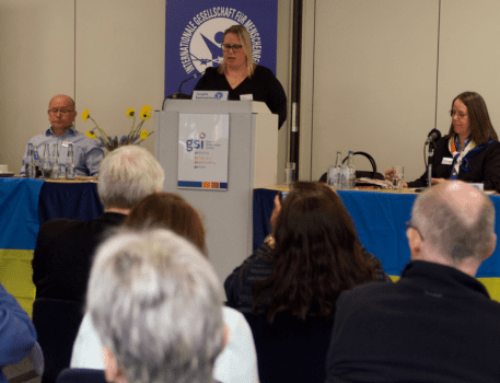
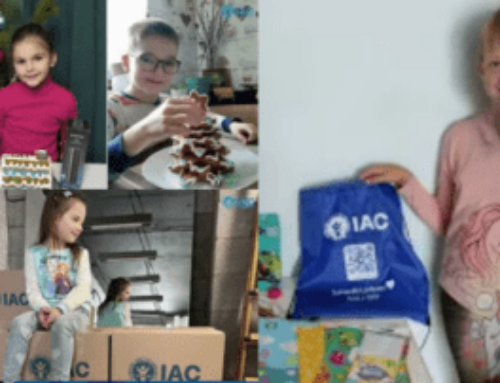
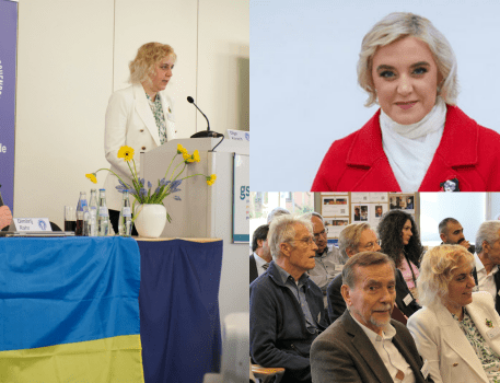
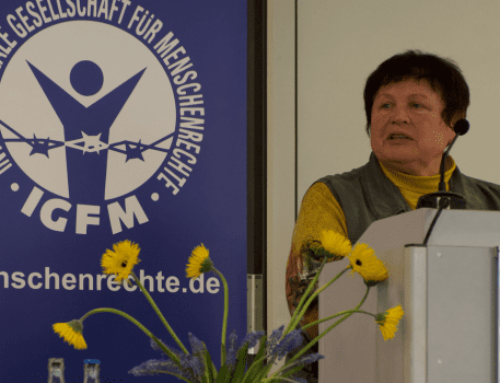
You are strong and sooner or later everything will be ” just a bad memory”